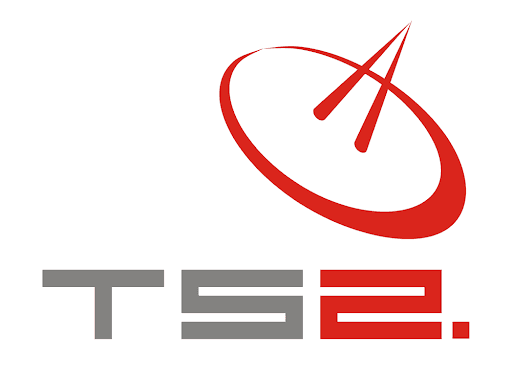Logistics Hub: Warsaw, Poland & Lviv, Ukraine
Technology Portfolio
Need something not listed? We are an authorised distributor/VAR for 60+ OEMs and can source virtually any satellite or unmanned-tech component within 5-14 days.
Broadband Satellite Internet
Starlink Gen 3 / Rev 4, Starlink Mini; GEO/NGSO Ku- & Ka-band VSAT terminals (Cobham, Hughes, iDirect)
Zero-touch provisioning, ground-block mounting, dynamic beam switching, SLA up to 99.7 %
Satellite Broadcast & Teleport
Full-transponder & occasional-use capacity on AMOS-7, Astra-4A, AzerSpace-1, Eutelsat 36B
Turn-key uplink, multiplexing (DVB-S/S2 & ISDB-T), 24/7 carrier monitoring & redundancy
Mobile Satcom & Satphones
Iridium Extreme, Thuraya X5-Touch, Inmarsat IsatPhone 2; Push-to-Talk (PTT) over satellite
National SIM registration, group call configuration, rental pool for short missions
IoT / M2M / Asset Tracking
Cobham Sailor 4300, Benish Universal trackers, ORBCOMM OGi modems
Real-time CAN-bus data, fuel & route analytics, integration with Kontrol Plus & Esri GIS
Earth-Observation & Geo-Analytics
SuperView, Capella, Satellogic, KOMPSAT-3A, Eros-B imagery
Task-on-demand, ortho/DEM generation, object-of-interest change detection, NDVI & flood maps
GNSS / Survey Solutions
Trimble R12i, Leica GS18 T, Septentrio AsteRx; NTRIP/RTK correction services
Cadastral & topographic survey, corridor mapping for utilities, as-built BIM deliverables
Unmanned Aerial & Ground Systems
VTOL drones (Atlas PRO, JAEGER); fixed-wing ISR (Silent Falcon); UGV platforms (Milrem THeMIS)
Crew training (EASA SORA-compliant), payload swap-out, rapid depot-level repair
Counter-UAS & Air-Defence Adjuncts
RF jammers (Cage Industries), radar/EO fusion sensors, passive RF-direction-finding kits
Site survey, spectrum analysis, layered C2 integration, 24-hour field replacement
Secure Networking & Cybersecurity
L2VPN/MPLS over SATCOM & LTE, Fortinet NGFW, Juniper ACX rugged routers
Crypto-agile tunnelling, tactical MANET nodes, 24/7 SOC-as-a-Service, red-team drills
Field Energy & Power Resilience
Rugged LiFePO₄ UPS, 48 V DC micro-grids, foldable PV kits (Goal Zero, EcoFlow)
Load modelling, hybrid-gen design, EMI/EMP hardening, preventive maintenance
Tactical Computing & Rugged IT
Getac B360 laptops, Panasonic TOUGHBOOK 40, Crystal Group RS110 servers
Image-chain accreditation, MIL-STD-810H certification audits, on-site IMAC-D
Rapid-Deployment Comms Kits
Fly-away satcom cases, inflatable masts, LTE-in-a-Box (parallel EPC)
30-min setup, IP-67 transit cases, hotspot coverage up to 5 km, option for HF/mesh back-haul
NEWEST SPACE TECHNOLOGY MARKET ANALYSES
satellite reports
Drone Laws in Greece: 2025 Comprehensive Guide for Recreational & Commercial Pilots
Regulatory Framework in Greece (EU and National Regulations) Greece’s drone regulations are governed by both European Union rules and national requirements set by the Hellenic Civil Aviation Authority (HCAA). As[…]
Read moreGoogle Pixel 10, Pixel 10 Pro & Pixel 10a – Rumors, Leaks and Everything We Know
Introduction & Overview: Google Pixel 10 Rumors, Leaks, and Confirmed Information Google’s tenth-generation Pixel phones are shaping up to be milestone devices. The Pixel 10 series – which rumors say[…]
Read moreAmerica’s Internet Divide Exposed: The Truth About Access, Speed, and the Satellite Revolution
The internet is the backbone of modern American life, but not all Americans enjoy equal access or quality of service. As of 2025, the United States boasts some of the[…]
Read moreSecret SpaceX Launch, Starlink Triumphs, and Solar Storm Warnings – Space News Roundup (July 13–14, 2025)
Satellite and Space News Roundup for July 13–14, 2025 The past two days saw major space milestones and surprises across the globe. A mystery SpaceX launch carried a “smartphone in[…]
Read moreOpenAI Hits Pause, Musk’s Bot Blunders, and 1 Million Robots – AI News Roundup (July 13–14, 2025)
AI Breakthroughs and Controversies Explode: What Happened in the World of Artificial Intelligence (July 13–14, 2025) The past 48 hours have been extraordinary in the world of artificial intelligence. From[…]
Read moreBitcoin Breaks $120K, Hackers Lurk, and Quantum Leaps – Tech News Roundup (July 13–14, 2025)
Cryptocurrency & Fintech: Bitcoin’s New High and a Trump Token Frenzy Bitcoin Smashes Records: The world’s largest cryptocurrency Bitcoin soared past $120,000 for the first time on Monday, marking a[…]
Read moreComplete Overview of Casio G-SHOCK: Features, Models, News, and Market Comparisons
Casio G-SHOCK: A Comprehensive Report (2025) 1. History and Origins of the G-SHOCK Brand The Casio G-SHOCK story began with a simple yet radical vision by Casio engineer Kikuo Ibe[…]
Read more2025 Fighter Jet Revolution: New Stealth Fighters, Global Deals, and Sky-High Showdowns
Newly Unveiled and Upgraded Fighter Jets in 2025 – Global Military Fighter Jet News Roundup from 2025 China publicly unveiled its new fifth-generation carrier jet program this year, revealing the[…]
Read moreSamsung Galaxy Z Fold7 – Samsung’s Ultra-Thin Foldable Redefines the Game
Overview: A New Era for Foldables in 2025 Samsung’s Galaxy Z Fold7 has officially arrived as the company’s 2025 foldable flagship – and it’s making waves with major upgrades across[…]
Read moreSamsung Galaxy S26 Leak Bombshell: 200MP Camera Monster, AI Upgrades & Radical Lineup Shake-Up
Release Date & Lineup Changes Samsung is expected to unveil the Galaxy S26 series in early 2026, likely at a Galaxy Unpacked event in mid-January or early February phonearena.com phonearena.com.[…]
Read moreThe Race to 6G: How the Next-Gen Network Will Revolutionize Connectivity (and Leave 5G in the Dust)
Introduction 6G – short for sixth-generation wireless technology – is the forthcoming successor to today’s 5G networks, promising to leave 5G in the dust with unprecedented performance. In simple terms,[…]
Read moreJuly 2025 Mobile Tech Shockers: Foldables, AI Phones & Global 5G Leaps
Global Science Highlights from July 2025 A Jam-Packed July for Mobile Tech: From ultra-slim foldables in New York to 6G trials in Tokyo, July 2025 delivered a cascade of mobile[…]
Read more10 Game-Changing Science Breakthroughs in July 2025 – From Space to Health
Global Science Highlights from July 2025 July 2025 has been a blockbuster month for science, with breakthroughs spanning the cosmos to cutting-edge medicine. From unprecedented interstellar visitors and sun-skimming spacecraft[…]
Read moreChina’s July 2025 Tech Shockwave: AI Supercomputers, Chip Wars & EV Showdowns
AI Breakthroughs and Ambitions China’s artificial intelligence sector surged ahead in July 2025 with bold moves in both software and infrastructure. Early in the month, Beijing-based startup Moonshot AI open-sourced[…]
Read moreComprehensive Guide to Drone Laws in Portugal (2025 Update)
Portugal adheres to the European Union’s common drone regulations, but also imposes several country-specific rules. Whether you are a recreational flyer or a commercial operator, it is crucial to understand[…]
Read moreTS2 Space Sp. z o.o.
TS2 SPACE, LIM Center, XVI floor, Aleje Jerozolimskie 65/79, PL 00-697 Warsaw, Poland
phone +48 22 630 70 70, +48 22 630 70 70, fax +48 22 630 70 71
7:00 AM – 5:00 PM Greenwich Mean Time (GMT)














